Index relies entirely on the support of donors and readers to do its work.
Help us keep amplifying censored voices today.
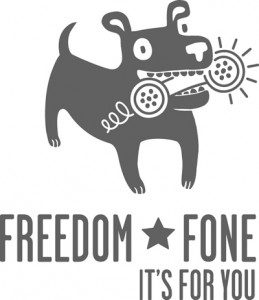
Kubatana is an NGO based in Harare that uses a variety of new and traditional media to encourage ordinary Zimbabweans to be informed, inspired and active about civic and human rights issues. As an organisation, it continuously seeks innovative fixes to the challenges of sharing independent information in Zimbabwe’s restrictive media environment. Freedom Fone is one of Kubatana’s solutions. An open-source software, Freedom Fone helps organisations create interactive voice response (IVR) menus to enable them to share pre-recorded audio information in any language via mobile phones and landlines with their members or the general public. The software is aimed at organisations or individuals wishing to set up interactive information services for users where the free flow of information may be denied for economic, political, technological or other reasons. Freedom Fone is one of the many ways Kubatana reaches across the digital divide to inform and inspire the vast majority of Zimbabweans who do not have regular or affordable internet access.
 ObscuraCam is a free smartphone application that uses facial recognition to blur individual faces automatically. Developed by WITNESS and the Guardian Project, it enables users to protect their personal security, privacy and anonymity. In 2011 and 2012, uprisings throughout the Middle East have shown the power and danger of mobile video footage. ObscuraCam helps protect activists who fear reprisals but want to safely capture evidence of state brutality. Launched in June 2011 and based in the USA, ObscuraCam is the only facial blurring or masking application that has responded to the concerns of human rights groups, citizen activists and journalists. In addition to obscuring faces, the application removes identifying data such as GPS location data and the phone make and model.
ObscuraCam is a free smartphone application that uses facial recognition to blur individual faces automatically. Developed by WITNESS and the Guardian Project, it enables users to protect their personal security, privacy and anonymity. In 2011 and 2012, uprisings throughout the Middle East have shown the power and danger of mobile video footage. ObscuraCam helps protect activists who fear reprisals but want to safely capture evidence of state brutality. Launched in June 2011 and based in the USA, ObscuraCam is the only facial blurring or masking application that has responded to the concerns of human rights groups, citizen activists and journalists. In addition to obscuring faces, the application removes identifying data such as GPS location data and the phone make and model.
Visualizing.org was created to help make data visualisation more accessible to the general public. It calls itself “a community of creative people making sense of complex issues through data and design… and a shared space and free resource to help you achieve this goal”.Data analysts and graphic designers have set themselves the challenge of sharing a constantly proliferating body of public data in an accessible form. Raw data on its own might as well be censored; visualisation opens the door to open information that otherwise would be left languishing on hard disks or, if downloaded, unintelligible to the average citizen. The project offers a place to showcase work, discover remarkable visualisations and visually explore some of today’s most pressing global issues. Created by GE and Seed Media Group, Visualizing.org promotes information literacy. The portal has had a remarkable year.
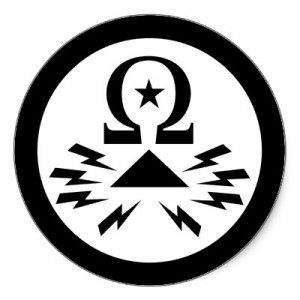 Telecomix is the collective name for a decentralised group of internet activists operating in Europe. Their focus is to expose threats to freedom of speech online. During one operation, Telecomix activists published a huge package of data which proved that the Syrian government was carrying out mass surveillance of thousands of its citizens’ internet usage. Telecomix’s revelation that the technology used was supplied by US firm Blue Coat Systems has prompted serious investigations into the involvement of western technology firms in helping repressive regimes spy on their people. In mid-August 2011, Telecomix’s dispersed group of hackers came together to target Syria’s internet. Those attempting to access the internet though their normal browsers were confronted with a blank page bearing a warning: “This is a deliberate, temporary internet breakdown. Please read carefully and spread the following message. Your internet activity is monitored.” Following this, a page flashed up describing how to take precautions to encrypt usage.
Telecomix is the collective name for a decentralised group of internet activists operating in Europe. Their focus is to expose threats to freedom of speech online. During one operation, Telecomix activists published a huge package of data which proved that the Syrian government was carrying out mass surveillance of thousands of its citizens’ internet usage. Telecomix’s revelation that the technology used was supplied by US firm Blue Coat Systems has prompted serious investigations into the involvement of western technology firms in helping repressive regimes spy on their people. In mid-August 2011, Telecomix’s dispersed group of hackers came together to target Syria’s internet. Those attempting to access the internet though their normal browsers were confronted with a blank page bearing a warning: “This is a deliberate, temporary internet breakdown. Please read carefully and spread the following message. Your internet activity is monitored.” Following this, a page flashed up describing how to take precautions to encrypt usage.
 Voina, meaning “War”, is a collective of radical Russian anarchist artists who combine political protest and performance art.
Voina, meaning “War”, is a collective of radical Russian anarchist artists who combine political protest and performance art.
Voina’s carries out actions directed against the authorities. In June 2010, members painted a 65-metre phallus on a drawbridge in St Petersburg which, when raised, faced the city headquarters of the federal security service.
Voina members Vorotnikov and Leonid Nikolayev were imprisoned from November 2010 to February 2011 in connection with an anti-corruption protest and, in July 2011, Russian police issued an international arrest warrant for Vorotnikov. A warrant for the arrest of fellow artist Natalia Sokol was issued in December 2011.
 AiWeiwei is a Chinese artist and activist whose work incorporates social and political activism. He has investigated corruption and cover-ups and openly criticised the Chinese government’s record on human rights.
AiWeiwei is a Chinese artist and activist whose work incorporates social and political activism. He has investigated corruption and cover-ups and openly criticised the Chinese government’s record on human rights.
Ai’s 81-day detention in 2011 caused international uproar. He was arrested in April, alongside several of his friends and colleagues. Since the Chinese authorities released him on bail in June 2011, he has been fined $2.4 million in back taxes and penalties. Though officials arrested Ai for alleged economic crimes, supporters say he was punished for his activism and vocal critiques of the government. He paid a $1.3 million bond with loans from supporters, who contributed online and in person and even throwing cash over the walls of his studio in Beijing.
In November 2011, after Ai announced that authorities were investigating his cameraman for pornography in connection with photos that featured the artist and four women naked, internet users responded tweeting nude photos of themselves in support.
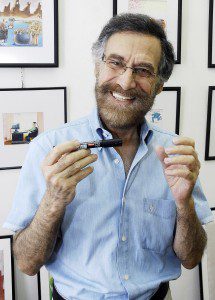 Syrian cartoonist Ali Ferzat has been called “an icon of freedom in the Arab world”. He has spent decades ridiculing dictators in more than 15,000 caricatures. His depictions of President Assad and the police state have helped galvanise revolt in Syria.
Syrian cartoonist Ali Ferzat has been called “an icon of freedom in the Arab world”. He has spent decades ridiculing dictators in more than 15,000 caricatures. His depictions of President Assad and the police state have helped galvanise revolt in Syria.
In August 2011, Ferzat was wrenched from his vehicle in central Damascus by pro-Assad masked gunmen who beat him badly and broke his hands. Passers-by found Ferzat dumped at the side of a road; his briefcase and the drawings inside it had been confiscated by his attackers.
Ferzat earned regional and international recognition in the 1980s with stinging cartoons of officials, autocrats and dictators including Saddam Hussein and Muammar Gaddafi. Saddam Hussein called for Ferzat’s death in 1989 after an unfavourable portrait of him was exhibited in Paris and Ferzat’s cartoons have been banned in numerous Arabic countries.
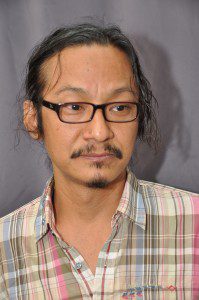 Min Htin Ko Ko Gyi, a poet, filmmaker and screenwriter, co-founded Burma’s inaugural Arts of Freedom Film Festival, which took place in early January 2012.
Min Htin Ko Ko Gyi, a poet, filmmaker and screenwriter, co-founded Burma’s inaugural Arts of Freedom Film Festival, which took place in early January 2012.
Burmese citizens were invited to create a short film on the theme of freedom. Despite the state media’s refusal to cover the announcement, Ko Ko Gyi and his organisers received 188 submissions. Thousands gathered in Rangoon under the banner “Free Art, free thought, freedom”, to watch the selected films. More than 7,000 attendees voted for Cut This Scene to win one of five awards. The film is a satire of a government censorship committee struggling to set the criteria by which to censor films.
 The author of China’s most widely read blog, 29-year-old Han Han has been called “the world’s most popular blogger”. He is also famed for being a cultural critic, race-car driver, actor and novelist. But despite his rock star status he has long been considered a thorn in the side of the Chinese government.
The author of China’s most widely read blog, 29-year-old Han Han has been called “the world’s most popular blogger”. He is also famed for being a cultural critic, race-car driver, actor and novelist. But despite his rock star status he has long been considered a thorn in the side of the Chinese government.
Though he has avoided ideological allegiances, Han Han recently sparked controversy with his essays, “On Democracy”, “On Revolution” and “Wanting Freedom”, which questioned where democracy really equals freedom and whether China will ever be capable of genuine reform.
Han Han has talked about suffering censorship: “Each time I do finish writing something and then can’t see it [after I post it, because it has been censored], I get despondent. And there are just so many government departments [to get past]. Even if the propaganda department and the General Administration of Press and Publications are fine with something, any department issued can wipe your essay away with a simple phone call.”
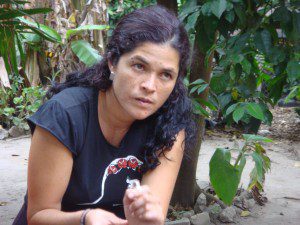 Lucía Escobar’s story highlights the state of press freedom in Guatemala, where journalists are regularly intimidated by paramilitary groups. Escobar is a freelance columnist for El Periódico, a publication based in Guatemala City, and also operates an online radio station, Radio Ati.
Lucía Escobar’s story highlights the state of press freedom in Guatemala, where journalists are regularly intimidated by paramilitary groups. Escobar is a freelance columnist for El Periódico, a publication based in Guatemala City, and also operates an online radio station, Radio Ati.
On 19 October 2011, Escobar published a column alleging that a local mayor had turned a citizens’ group into a death squad that was socially cleansing “undesirables”, such as beggars and homeless people, and committed crimes including lynchings, torture, beatings and a kidnapping. In her column, Escobar blamed local government figures for being indifferent to the group’s activities.
Subsequent death threats forced Escobar to flee her home with her family and she has said she will remain in exile until the situation improves. No action has been taken by Guatemalan authorities, pointing to a worrying trend in Central America where those in power ignore attacks on journalists.
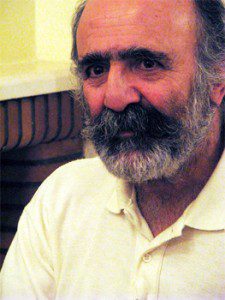 Iranian journalist Kayvan Samimi has been instrumental in keeping dissent alive in the Islamic Republic.
Iranian journalist Kayvan Samimi has been instrumental in keeping dissent alive in the Islamic Republic.
Despite being imprisoned since 2009, Samimi has played a significant role in highlighting the attacks against those who attempt criticise the Iranian administration. In May 2011 Samimi co-authored a letter condemning the Iranian administration for its treatment of prisoners. The letter recorded the methods of torture used against the signatories.
He is serving a six-year prison sentence on charges of “propagating against the regime” and “assembly and collusion to disrupt national security” and has been banned from “political, social, and cultural activities” for 15 years, having been detained in the immediate aftermath of the 2009 presidential election.
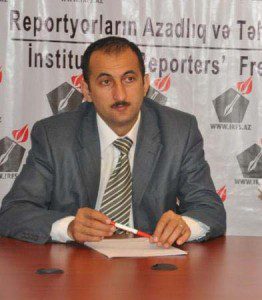 Idrak Abbasov is an Azerbaijani journalist whose investigative work has put his life in danger. Abbasov reports for newspaper Ayna-Zerkalo, contributes to the Institute for War & Peace Reporting website, and he is one of the founding members of Azerbaijan’s Institute for Reporters’ Freedom and Safety (IRFS) .
Idrak Abbasov is an Azerbaijani journalist whose investigative work has put his life in danger. Abbasov reports for newspaper Ayna-Zerkalo, contributes to the Institute for War & Peace Reporting website, and he is one of the founding members of Azerbaijan’s Institute for Reporters’ Freedom and Safety (IRFS) .
On 9 September 2011, after Abbasov investigated the activities of a local oil company, the State Oil Company of Azerbaijan (SOCAR) sent bulldozers to his family’s home. SOCAR claimed ownership of the site as part of a project to develop local oil resources with Global Energy Azerbaijan Ltd. His parents and brother were hospitalised after being attacked by the company’s security service during the incident.
It is believed that bulldozers targeted the journalist’s home because of his work monitoring human rights. The violence, threats and harassment of Abbasov and his family continued when his parents were again attacked at their home. One assailant reportedly said: “Tell Idrak to get smarter, or we will cut off his ears.”